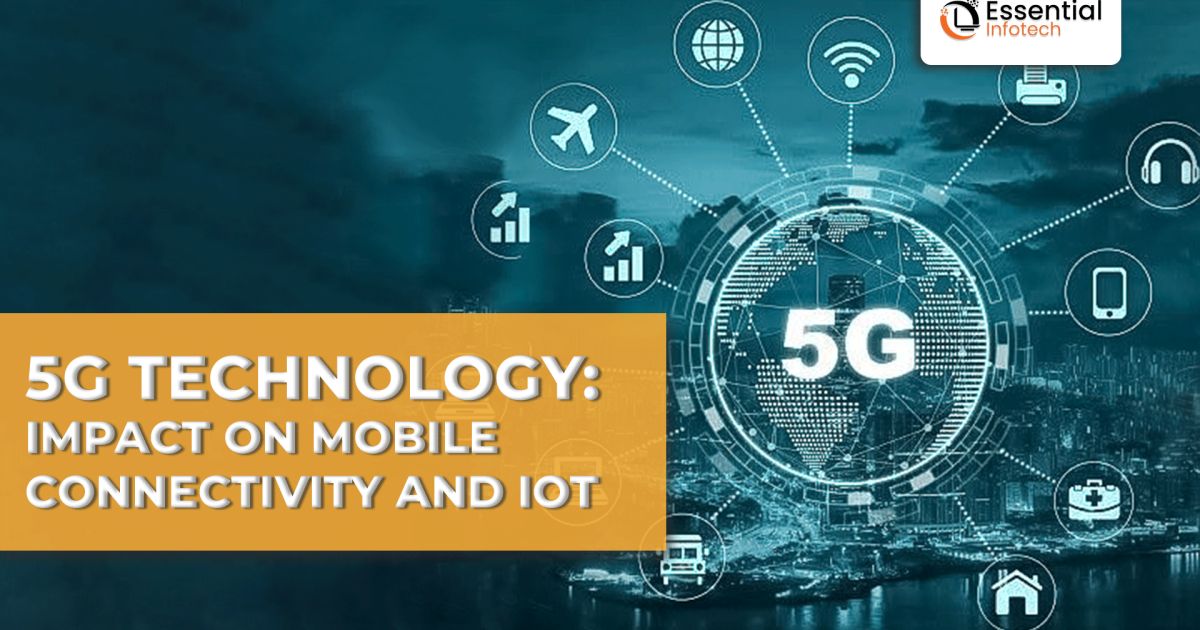

5G Technology: Impact on Mobile
Connectivity and IoT
5G technology has become a disruptive force in the telecoms industry,
with the potential to alter mobile connections and strengthen the Internet of
Things (IoT) network. 5G, the fifth generation of wireless technology, opens up
new possibilities for numerous industries with its unmatched speed,
dependability, and low latency. We'll examine how 5G technologies affects IoT and mobile connectivity in this
post, as well as how it might change the digital landscape.
The
Evolution of Mobile Connectivity
· Unprecedented Velocity: The innovation
behind 5G technology brings
about notably accelerated data speeds compared to its predecessors. This
advancement holds the potential to furnish connections at
multi-gigabit-per-second rates, facilitating flawless streaming of
high-definition video, instantaneous gaming, and rapid downloads. Ultimately,
this enhances the mobile consumer's overall experience.
· Minimal Delay: Among the most
captivating attributes of 5G lies in its exceptionally low latency, denoting the duration for
data to traverse between devices and servers. By reducing latency by up to ten
times in comparison to 4G, 5G paves the way for latency-sensitive applications
such as augmented reality (AR), virtual reality (VR), and autonomous vehicles, where immediate responsiveness is
paramount.
· Extensive Interconnectivity: 5G technology pledges to accommodate a vast array of
connected devices within a given area, rendering it ideal for the proliferation
of IoT devices. From interconnected smart homes and cities to applications in
industrial automation and healthcare, 5G facilitates the seamless integration of billions
of interconnected devices, fostering novel avenues for innovation and efficiency.
The
Impact on IoT Ecosystem
·
Enhanced IoT Functionality: The combination of 5G's expansive
bandwidth and minimal latency marks a significant advancement for IoT
applications. This combination facilitates real-time data
processing, remote monitoring, and predictive
analytics, presenting new opportunities across industries such as
manufacturing, logistics, and agriculture, where IoT devices are pivotal in streamlining operations and cutting
costs.
·
Integration of Edge Computing: 5G networks foster the integration of IoT and edge
computing, enabling data processing closer to its origin to diminish latency
and conserve bandwidth. This distributed computing model suits IoT deployments,
resulting in swifter response times, enhanced reliability, and increased
scalability.
·
Development of Smart Cities and Infrastructure: The advent of 5G technologies propels
the evolution of smart cities and infrastructure, where interconnected IoT
devices and sensors gather and analyze data to optimize resource distribution,
bolster public safety, and enrich the overall quality of life. From intelligent
traffic management to
environmental monitoring, IoT solutions
empowered by 5G are reshaping urban landscapes towards a smarter future.
Conclusion
The
effects of 5G technology on mobile connection and the
Internet of Things ecosystem are becoming more and more obvious as it rolls out
globally. 5G is set to unleash a wave of
innovation across industries, boosting efficiencies, improving user
experiences, and opening up new apps and services. Its unparalleled speed, low
latency, and huge connectivity make it possible. Businesses and organizations
may leverage the power of mobile connectivity and IoT to unlock new development
and innovation opportunities in the digital age by embracing the potential of 5G technologies.
We Are A Leading IT Company Experienced In Creative And Innovative Development And Design Solutions .